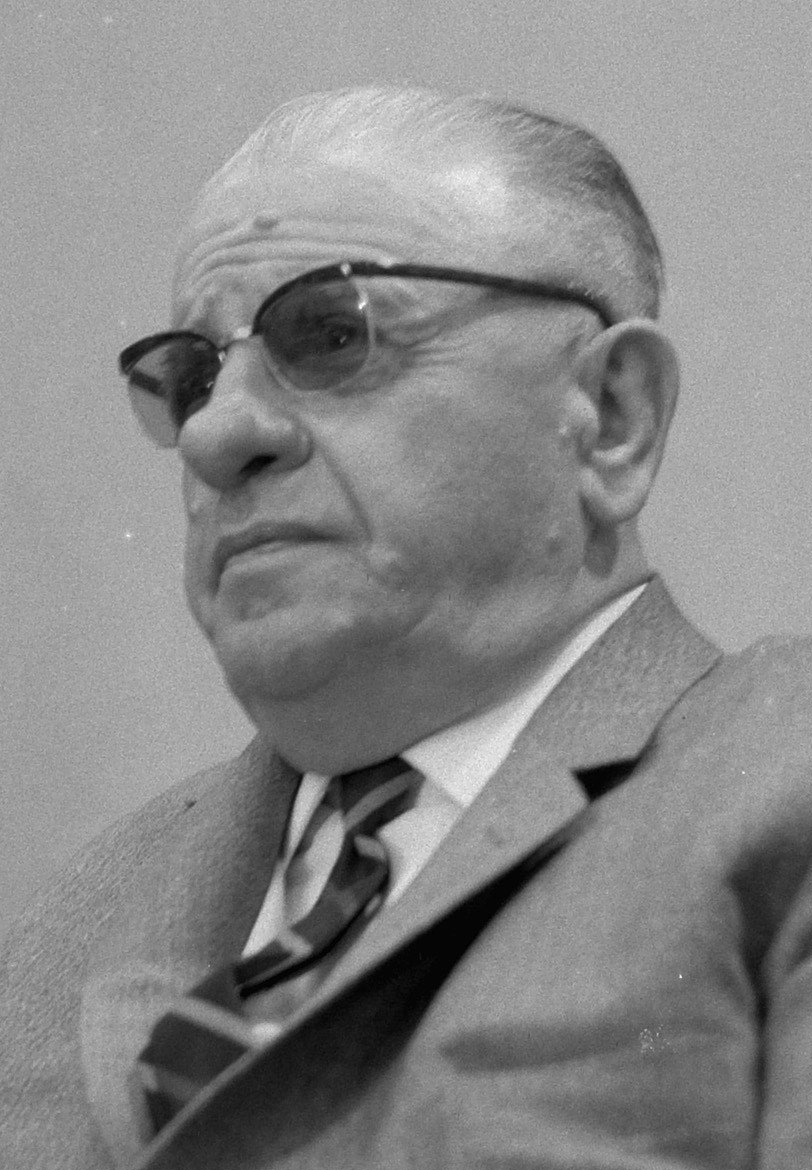1. Overview
Ahmet Cevdet Sunay (Cevdet SunayTurkish, February 10, 1899 - May 22, 1982) was a distinguished Turkish military officer and statesman who served as the fifth President of Turkey from 1966 to 1973. His career spanned from fighting in World War I and the Turkish War of Independence to ascending through the ranks of the Turkish Land Forces to become Chief of the General Staff. Sunay's presidency occurred during a period of significant political and social turbulence in Turkey, marked by intensified political polarization, rising terrorism, and widespread labor and student protests. Despite facing these formidable challenges, including threats of military coups and the actual military intervention of 1971 that led to the resignation of the Justice Party government, Sunay maintained his office and completed his constitutional term. He is remembered for navigating the country through a volatile era, ultimately becoming a permanent senator after his presidential tenure.
2. Early Life and Military Career
Cevdet Sunay's formative years laid the groundwork for his extensive military service, which defined a significant portion of his life before his transition into politics.
2.1. Childhood and Education
Ahmet Cevdet Sunay was born on February 10, 1899, in the village of Ataköy, located near Çaykara in the Trabzon Vilayet of the Ottoman Empire. His early education included attending elementary and middle schools in Erzurum and Edirne. He later graduated from the Kuleli Military High School in Istanbul, a crucial step in his military aspirations. Sunay continued his advanced military education, completing it in 1927, and subsequently graduated from the staff college in 1930, where he qualified as a staff officer.
2.2. Military Service
Sunay's military service began during a tumultuous period in Turkish history. In 1917, he participated in World War I as an officer, fighting on the Palestine front. During this conflict, in 1918, he was captured and became a prisoner of war of the British forces in Egypt. Following his release, Sunay continued his service, engaging in the Turkish War of Independence. He first fought on the southern front against France and then on the western front against Greece.
Throughout his career, Sunay steadily rose through the military hierarchy. He was promoted to the rank of general in 1949 and achieved the prestigious rank of four-star general in 1959. Holding numerous important military posts, he was appointed Commander of the Turkish Land Forces in 1960. Later the same year, he became the Chief of the General Staff of Turkey, a position he held until March 14, 1966.
3. Political Career
After a distinguished military career, Cevdet Sunay transitioned into national politics, assuming significant roles that culminated in his presidency.
3.1. Senate Appointment
On March 14, 1966, under the presidential contingency of then-President Cemal Gürsel, Cevdet Sunay was appointed to the Senate of the Republic. This appointment marked his formal entry into the political arena, leveraging his extensive military background and experience for a new form of public service.
3.2. Presidency
The political landscape of Turkey shifted significantly when Cemal Gürsel's presidency was terminated due to his deteriorating health, in accordance with the constitution. Consequently, Cevdet Sunay was elected as the fifth President of Turkey by the Grand National Assembly of Turkey on March 28, 1966. His seven-year term concluded on March 28, 1973.
Sunay's presidency was characterized by a period of profound instability and complex challenges within Turkey. The country experienced an escalation in terrorism, widespread student riots, and persistent threats of military coups. Political polarization intensified dramatically, leading to frequent labor unrest and political terrorism. During his administration, prominent political figures such as Süleyman Demirel, Nihat Erim, and Ferit Melen played significant roles within the government.
A critical moment during his tenure occurred in 1971, when a military intervention forced the resignation of the government led by Süleyman Demirel of the Justice Party. Despite these turbulent events and the ongoing political instability, President Sunay successfully maintained his office for his full constitutional term. Upon the completion of his presidency, he became a permanent senator.

4. Personal Life
Cevdet Sunay was married to Atıfet Sunay in 1929. Together, they had three children: sons Atilla and Argun Sunay, and a daughter, Aysel Sunay.
5. Death
Cevdet Sunay died from a heart attack on May 22, 1982, in Istanbul. His remains were later relocated in August 1988 to their permanent burial place at the newly constructed Turkish State Cemetery in Ankara.
q=Turkish State Cemetery, Ankara|position=right
6. Honours
Cevdet Sunay received several distinguished national and foreign honours throughout his life.
National honours
- Recipient of the Medal of Independence with Red Ribbon.
Foreign honours
- Commemorative Medal of the 2500th Anniversary of the founding of the Persian Empire (Iran, October 14, 1971).
- Grand Cross with Collar of the Order of the White Rose of Finland (Finland, 1971).
- Knight Commander of the Order of the Bath (United Kingdom, KCB).